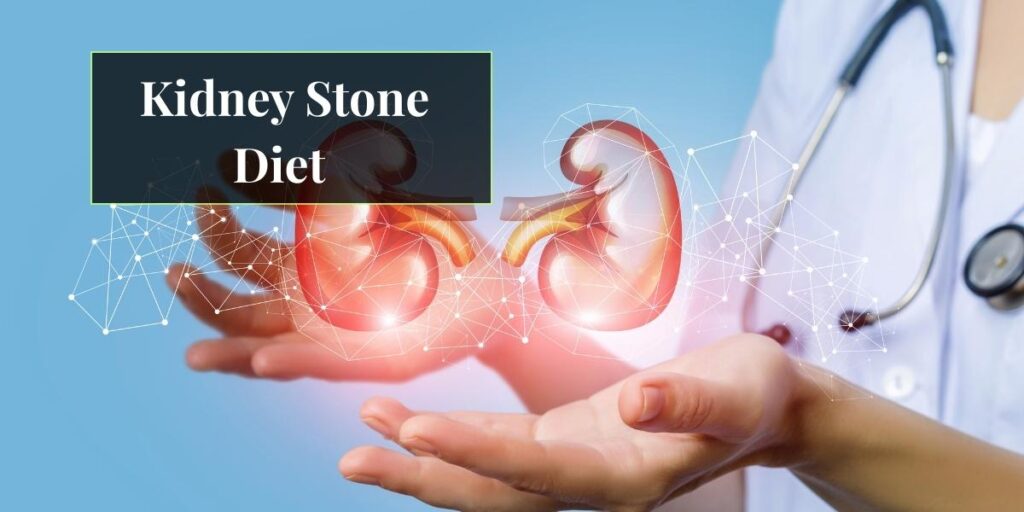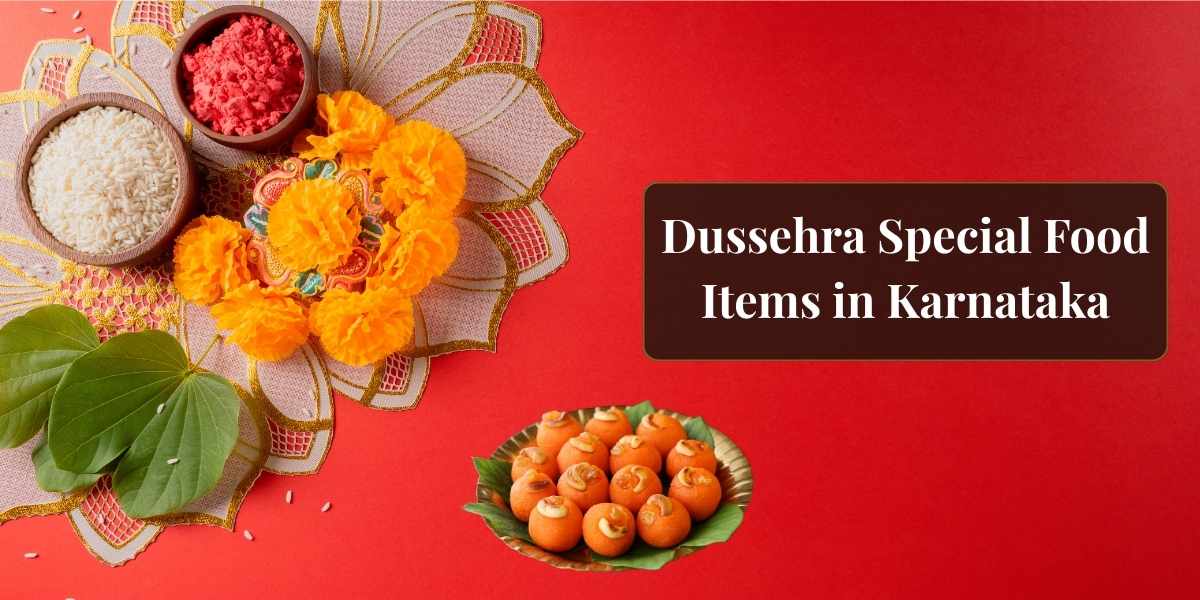Kidney stones are among the most widespread and distressing urinary tract conditions, affecting millions of people worldwide every year. They are often described as one of the most severe types of pain, with sharp, stabbing sensations typically felt in the back or side. Along with these intense symptoms, sufferers may also experience frequent and urgent urination, waves of nausea, vomiting, and even visible traces of blood in the urine. A variety of factors contribute to the development of these stones, including genetics, underlying medical conditions, and lifestyle habits. However, following a proper Kidney Stone Diet is one of the most significant influences, as it plays a critical role not only in the formation of stones but also in their prevention over time.
Knowing what to eat is just as important as understanding which foods should be avoided. Certain nutrient-rich options can improve urinary composition, stabilize mineral levels, and support kidney function in a way that reduces the chance of mineral crystallization. This proactive approach can lower the risk of stones forming again in the future, especially for those who have experienced recurring episodes.
This guide explores:
- The top 10 foods that help prevent kidney stones
- The most important factor for kidney stone prevention
- A practical diet plan for prevention
- The best supplements to consider
- And commonly asked questions to clear up misconceptions
Let’s take a deeper look at how a preventive diet and lifestyle approach can protect your kidneys and ensure long-term urinary health.
Top 10 Foods to Eat to Prevent Kidney Stones – Kidney Stone Diet
A kidney stone prevention diet primarily emphasizes proper hydration, lowering the intake of oxalates and uric acid, and balancing essential minerals such as calcium and magnesium. Consuming the right foods can significantly decrease the likelihood of stone formation by supporting healthy kidney function and urinary composition. These 10 foods have been scientifically demonstrated to play a key role in reducing the risk of developing kidney stones and promoting overall urinary tract health.
Lemons and Citrus Fruits
Lemons, oranges, and limes are excellent sources of citrate, a powerful natural compound that plays an important role in protecting the kidneys from stone formation. This substance works in two major ways:
- Binding with calcium in the urine, which prevents the development of crystals that may eventually turn into kidney stones
- Increasing the pH level of urine, making it less acidic and reducing the likelihood of stone growth
Incorporating these fruits into your daily routine is simple and effective. You could drink a refreshing glass of lemon water in the morning, add lime juice to your salads, or enjoy oranges as a snack. Over time, regular consumption of citrus fruits not only helps reduce the risk of kidney stones but also provides hydration, vitamin C, and antioxidants that support overall kidney and immune health.
Also Read – Foods to Eat and Avoid for Thyroid
Watermelon
Watermelon is more than just a summertime fruit; it is packed with water and acts as a gentle diuretic that benefits kidney function. Its naturally hydrating property helps in several ways:
- Flushing out excess minerals, waste products, and toxins from the urinary system
- Increasing urine volume, which dilutes substances such as calcium oxalate that contribute to kidney stone formation
Another added advantage is its rich potassium supply, which plays a crucial role in maintaining a healthy balance of minerals in the urine and supporting proper muscle and nerve function. Eating fresh slices of watermelon, blending it into smoothies, or enjoying it as a juice can be a tasty way to stay hydrated while protecting your kidneys. Regular intake of watermelon can also contribute to better digestion, improved metabolism, and overall body hydration, making it a beneficial choice beyond just kidney health.
Barley Water
Barley water has been valued in traditional medicine for centuries as a natural remedy to cleanse and support the kidneys. It works in several beneficial ways:
- Enhancing urine output, which encourages the flushing out of harmful toxins and stone-forming substances
- Helping to gradually dissolve smaller kidney stones and ease their passage
- Preventing excessive crystallization of minerals that could harden into stones
For best results, barley water should be consumed in moderate amounts throughout the day rather than in one large serving. Its mild, nutty flavor also makes it a soothing drink for hydration. Apart from kidney health, it supports digestive function, helps regulate cholesterol, and can aid in maintaining healthy blood sugar levels, making it a wholesome addition to a balanced diet.
Cucumber
Cucumber is another kidney-friendly food that primarily supports hydration and detoxification. Due to its high water content, it helps maintain fluid balance while gently soothing the kidneys. Additionally, it contains silica and remains naturally low in oxalates, making it especially beneficial for people susceptible to kidney stones.
There are many easy ways to include cucumber in meals: add it raw to salads, blend it into green smoothies, or infuse slices into detox water for a refreshing drink throughout the day. Consistent consumption can help reduce toxin buildup, promote lighter digestion, and maintain skin hydration. Because it is low in calories yet nutrient-rich, cucumber also supports healthy weight management, adding extra benefits beyond kidney health.
Calcium-Rich Foods (from dietary sources)
Even though it may seem contradictory, consuming calcium through food is actually effective in preventing calcium oxalate stones. The reason is:
Dietary calcium binds to oxalates within the digestive tract, reducing their absorption into the bloodstream and preventing them from being excreted in urine
Good sources include:
- Yogurt
- Paneer
- Fortified plant-based milks
- Tofu
- Low-fat cheese
It’s important to obtain calcium from natural food sources rather than relying on supplements. Excessive calcium supplements, unless specifically prescribed by a doctor, may increase the likelihood of stone formation. Regular intake of natural dietary calcium not only aids the kidneys but also supports bone strength, muscle function, and healthy nerve signaling.
Bananas
Bananas are an easily available fruit packed with essential minerals that benefit kidney function and help prevent stone development. Their richness in magnesium and potassium provides significant support as they:
- Regulate the balance of minerals in the body, which is essential for kidney health
- Prevent excessive calcium accumulation in urine
- Reduce the absorption of oxalates that contribute to stone formation
In addition, bananas are gentle on the digestive system and provide valuable dietary fiber that supports smooth digestion. Their natural sweetness makes them a convenient snack, smoothie ingredient, or breakfast addition. Regular inclusion of bananas boosts energy, supports heart health, and provides a sustainable source of nutrients while lowering the risk of developing kidney stones.
Whole Grains (Low-Oxalate)
Whole grains such as brown rice, barley, oats, and millets are particularly beneficial for supporting overall kidney health. These grains contribute in several ways:
- Helping regulate blood sugar levels and improving insulin sensitivity, both of which can reduce risks linked to kidney strain
- Lowering uric acid production, which is often associated with certain types of kidney stone formation
- Providing abundant dietary fiber, B-vitamins, and essential minerals that keep the body nourished
It is important to choose grains that are naturally low in oxalates and enjoy them in moderate, well-balanced portions. Replacing refined grains with these healthier alternatives supports digestive wellness, aids weight management, and also promotes long-term cardiovascular and kidney health.
Cabbage and Cauliflower
Cabbage and cauliflower are excellent kidney-friendly vegetables that differ from high-oxalate greens like spinach or beet leaves. Their unique nutritional profile offers several advantages:
- Delivering antioxidants that help neutralize dangerous free radicals and protect cells from oxidative stress
- Supporting natural detoxification processes in the body, easing the burden on the kidneys
- Providing dietary fiber and vitamin C for better digestion and immune strength
These vegetables can easily replace oxalate-rich greens in daily cooking. They can be steamed, stir-fried, or added into soups and curries for versatile preparation. Regular inclusion not only safeguards the kidneys but also promotes gut health and reduces inflammation throughout the body.
Apples
Apples stand out as a fruit particularly suited for kidney health because they are naturally low in oxalates yet high in beneficial compounds like pectin, a soluble fiber. Their benefits include:
- Reducing inflammation, which can ease strain on the kidneys and urinary tract
- It binds with harmful toxins and excess minerals, thereby aiding detoxification
- Helping regulate both blood sugar levels and uric acid metabolism
To maximize these benefits, apples should be eaten whole along with the skin, as that ensures the highest fiber content. Besides supporting kidney health, apples help in weight management, improve digestion, and offer antioxidants that strengthen immunity, making them a wholesome fruit for daily consumption.
Herbal Teas (Non-Oxalate Based)
Certain herbal teas act as gentle natural remedies to support urinary and kidney health. Options like dandelion root tea, nettle tea, and chamomile tea provide therapeutic effects such as:
- Increasing urine volume, which assists in flushing out toxins and stone-forming compounds
- Reducing inflammation in the urinary tract and kidneys
- Gently cleansing the body, thereby promoting smoother detoxification
However, it is advisable to avoid consuming teas that are high in oxalates—such as black tea and green tea—in excessive amounts, as they can increase the risk of kidney stone formation. Enjoying non-oxalate herbal teas in moderation not only benefits the kidneys but also helps with relaxation, digestive comfort, and overall well-being.
What Is the Most Important Factor to Prevent Kidney Stone Formation?
The single most important and effective factor to prevent kidney stone formation is maintaining consistent and adequate hydration throughout the day.
Why?
When urine becomes concentrated—usually as a result of insufficient fluid intake—it creates the perfect condition for minerals and waste products such as calcium, oxalate, and uric acid to combine and form crystals. Over time, these small crystals can cluster together and harden into stones. Drinking sufficient fluids regularly helps by
- Diluting the stone-forming chemicals present in urine
- Increasing overall urine production and flow
- Flushing out tiny crystals before they fuse into larger, problematic stones
How Much Water Should You Drink?
- Aim for 2.5 to 3 liters per day (approximately 10–12 glasses)
- Drink more if you are physically active, sweat heavily, or live in a hot climate
- Pay attention to urine color—pale yellow usually indicates good hydration
While plain water is the best option, other fluids can also be included. Choices like fresh lemon water, barley water, or lightly diluted fruit juices (with minimal added sugar) can all support hydration and lower the risk of stone development. Consistency is key—making hydration a lifestyle habit ensures your kidneys remain healthy and efficient in filtering waste.
What Kind of Diet Plan Is Recommended to Prevent Stones?
A balanced, Kidney Stone Diet plays a vital role in reducing the risk of developing stones, especially calcium oxalate and uric acid stones. Following a consistent framework not only supports kidney health but also benefits overall well-being.
General Guidelines
Hydrate consistently
- Drink water throughout the day, not just when you feel thirsty. Spreading fluid intake evenly ensures optimal urine dilution and prevents crystal buildup.
Limit oxalate-rich foods
- Cut down on foods like spinach, beetroot, rhubarb, sweet potatoes, and nuts, which are high in oxalates and can promote stone development if consumed in excess.
Consume dietary calcium
- Aim for about 1000–1200 mg per day from natural food sources instead of supplements. Adequate calcium binds with oxalates in the gut, preventing absorption into the bloodstream.
Reduce sodium intake
- Keep salt consumption under 2,300 mg per day. Excess sodium increases calcium excretion in urine, raising stone risk.
- Stay mindful by avoiding processed foods, instant noodles, canned soups, and fast food.
Moderate animal protein
- Eating too much red meat, poultry, or fish increases uric acid production, raising stone risk.
- Opt for smaller portions, lean cuts, or switch to plant-based protein like beans and lentils.
Limit sugar and fructose
- High sugar levels encourage obesity, insulin resistance, and higher uric acid levels.
- Avoid sodas, sweets, sugary cereals, and desserts.
Eat more fruits and vegetables
- Focus on those low in oxalates that also provide citrate, potassium, and magnesium. These compounds create a protective effect by balancing mineral levels and maintaining healthy urine pH.
Avoid crash diets
- Rapid weight loss sends more waste products into the urine, increasing the risk of stones. Choose gradual, sustainable weight management approaches instead.
Balance pH
- Incorporate alkaline-forming foods such as fresh fruits, vegetables, and herbal teas to neutralize the effects of acidic animal proteins.
Avoid excess vitamin C supplements
- Too much vitamin C (ascorbic acid) can be converted into oxalate, contributing to kidney stone formation. Stick to natural sources like citrus fruits in moderation.
By following these principles consistently, you create an eating pattern that protects the kidneys while supporting energy, digestion, and long-term metabolic health.
Supplements to Prevent Kidney Stones
While a well-balanced diet remains the foundation for preventing kidney stones, certain supplements can offer extra benefits when used under medical guidance. It is essential to talk to a healthcare provider before beginning any supplement program, as the right choice depends on individual health conditions and risk factors. Some supplements may help manage mineral balance and reduce the likelihood of stone formation by improving urine quality. However, taking supplements without professional advice can sometimes do more harm than good. Therefore, these should be considered supportive measures alongside proper diet and hydration.
Citrate Supplements (Potassium Citrate or Magnesium Citrate)
- Help bind calcium in the urine, preventing it from forming crystals that lead to stones.
- Increase urine pH, making it less acidic and less likely to support stone formation.
- Reduce stone formation risk by helping dissolve small crystals and preventing new ones from developing.
Often prescribed for people who frequently develop kidney stones or those who have low citrate levels in their urine, as citrate plays a protective role in urinary health.
Magnesium
- Binds to oxalate present in the intestines, which decreases oxalate absorption into the bloodstream.
- Prevents oxalate from entering the urine, thus lowering the chance of oxalate-based stone formation.
Typical dosage ranges from 200 to 400 mg daily, preferably obtained through magnesium-rich foods such as leafy greens, nuts, and whole grains; supplements are useful if dietary intake is insufficient or if a deficiency is diagnosed.
Vitamin B6 (Pyridoxine)
- Helps reduce the body’s production of oxalate, a major contributor to certain kinds of kidney stones.
- Works synergistically with magnesium, enhancing its ability to minimize oxalate levels and reduce stone risk.
Typically recommended for individuals with elevated urinary oxalate concentrations to help manage stone formation more effectively.
Probiotics
- Some bacterial strains, including Oxalobacter formigenes, can naturally break down oxalate in the gut.
- By lowering oxalate absorption, they may reduce how much oxalate reaches the urine and potentially lower stone formation risk.
Although research is ongoing, probiotics hold promise as an additional supportive treatment, particularly for individuals prone to recurrent kidney stones.
Calcium (from food)
- As mentioned earlier, calcium from food sources is preferable, as it binds oxalate in the digestive tract and reduces absorption.
- Good dietary sources include dairy products and fortified plant-based alternatives, which aid in balancing mineral levels without increasing stone risk.
Note: Always consult a healthcare provider before starting any supplements, as incorrect doses or types can sometimes increase the likelihood of kidney stones or cause other side effects.
Conclusion for Kidney Stone Diet
Kidney stones can cause significant discomfort and health challenges, but the encouraging news is that they are mostly preventable by adopting the right diet and lifestyle habits. Understanding how various foods and beverages influence kidney health empowers you to make informed, health-conscious decisions that can protect your kidneys and reduce stone risk over time.
Key Takeaways
- Stay well-hydrated above all else; drinking enough fluids is the foundation of kidney stone prevention.
- Include kidney-friendly foods such as citrus fruits, barley water, cucumbers, and bananas, which support hydration and reduce stone formation risk.
- Avoid foods high in oxalates, added sugars, and excessive sodium intake, as these contribute to crystal and stone formation.
- Follow a balanced diet rich in whole foods, ensuring adequate calcium intake while limiting excessive animal protein consumption to support urinary health.
- Consider supplements like magnesium and citrate if recommended by your healthcare provider, as they can help maintain mineral balance and reduce stone recurrence.
While diet alone is not a cure, it remains one of the most effective strategies for reducing your risk of kidney stones. Moreover, adopting these healthy habits benefits your overall wellness, supporting kidney function and general health for years to come.
FAQs: Kidney Stone Diet – Foods to Eat
Q1. Can I drink lemon water to help stop kidney stones?
Ans:- Yes. Lemon has a natural substance that stops stones by linking with calcium and making urine less acidic. Drinking lemon water often helps keep urine clear.
Q2. Are bananas safe for kidney stones?
Ans:- Yes. Bananas have minerals that control how stones form and help avoid them. They are also easy to digest.
Q3. Should I stay away from dairy if I have calcium stones?
Ans:- No. Eating foods with calcium can stop stones by trapping certain stone-causing substances in the food you eat. Only take calcium pills if your doctor says so.
Q4. Is coffee bad if I have kidney stones?
Ans:- Not if you drink it in moderation. But too much caffeine could cause more calcium in the urine, so drink plenty of water.
Q5. Can I eat nuts and seeds if I have kidney stones?
Ans:- Many nuts have substances that can cause stones, so it’s best to eat them sparingly if you get stones often.
Q6. How much water should I drink daily?
Ans:- Try to drink about 2 and a half to 3 liters (around 10-12 glasses) daily. Drink more if you sweat a lot or it’s hot outside.
Q7. Can I eat tomatoes with kidney stones?
Ans:- Yes, but don’t eat too many. If you worry about certain substances, take out the seeds before eating.
Q8. Is a vegetarian diet better for kidney stones?
Ans:- It can be helpful if you avoid lots of high-stone-forming vegetables and eat a balanced variety of foods.
Q9. Can supplements help stop kidney stones?
Ans:- Some might help, like magnesium and citrate pills, but only take them if a doctor tells you to.
Q10. What fruits are good for preventing kidney stones?
Ans:- Fruits like lemons, oranges, watermelon, and apples are good choices.







